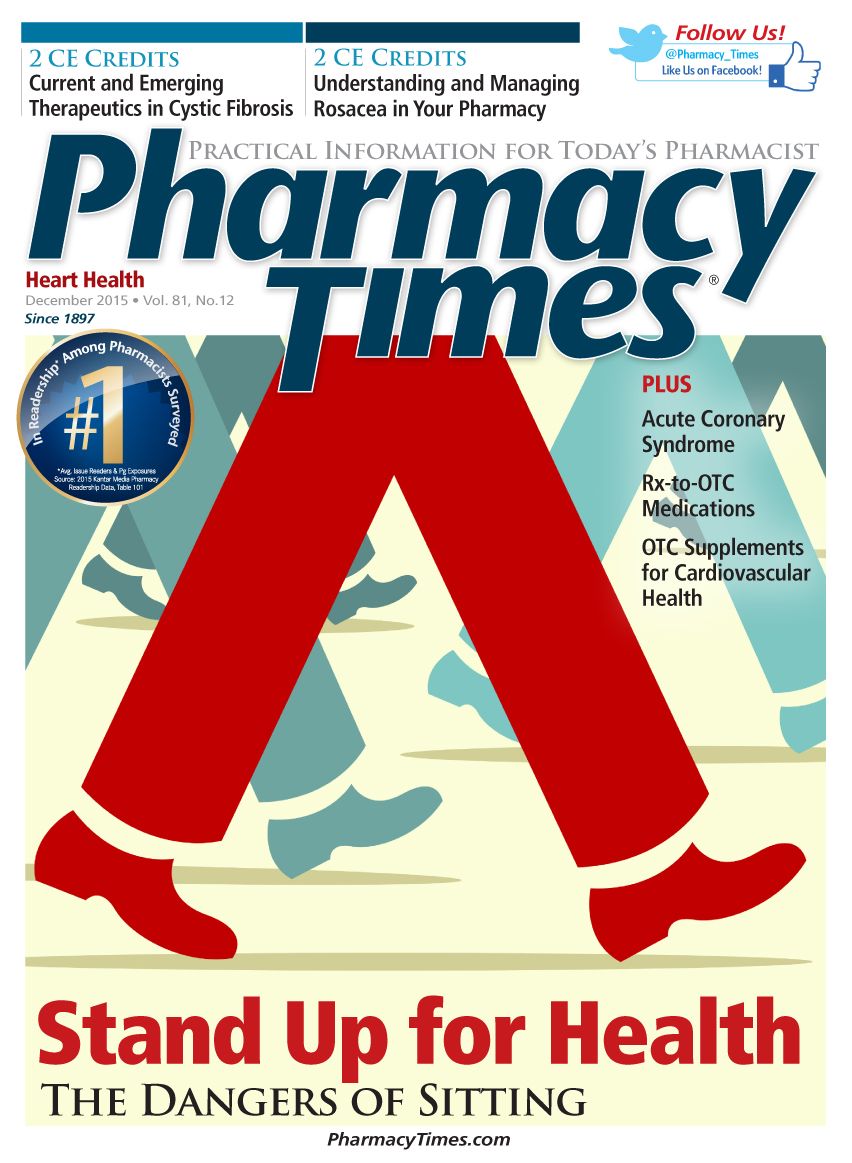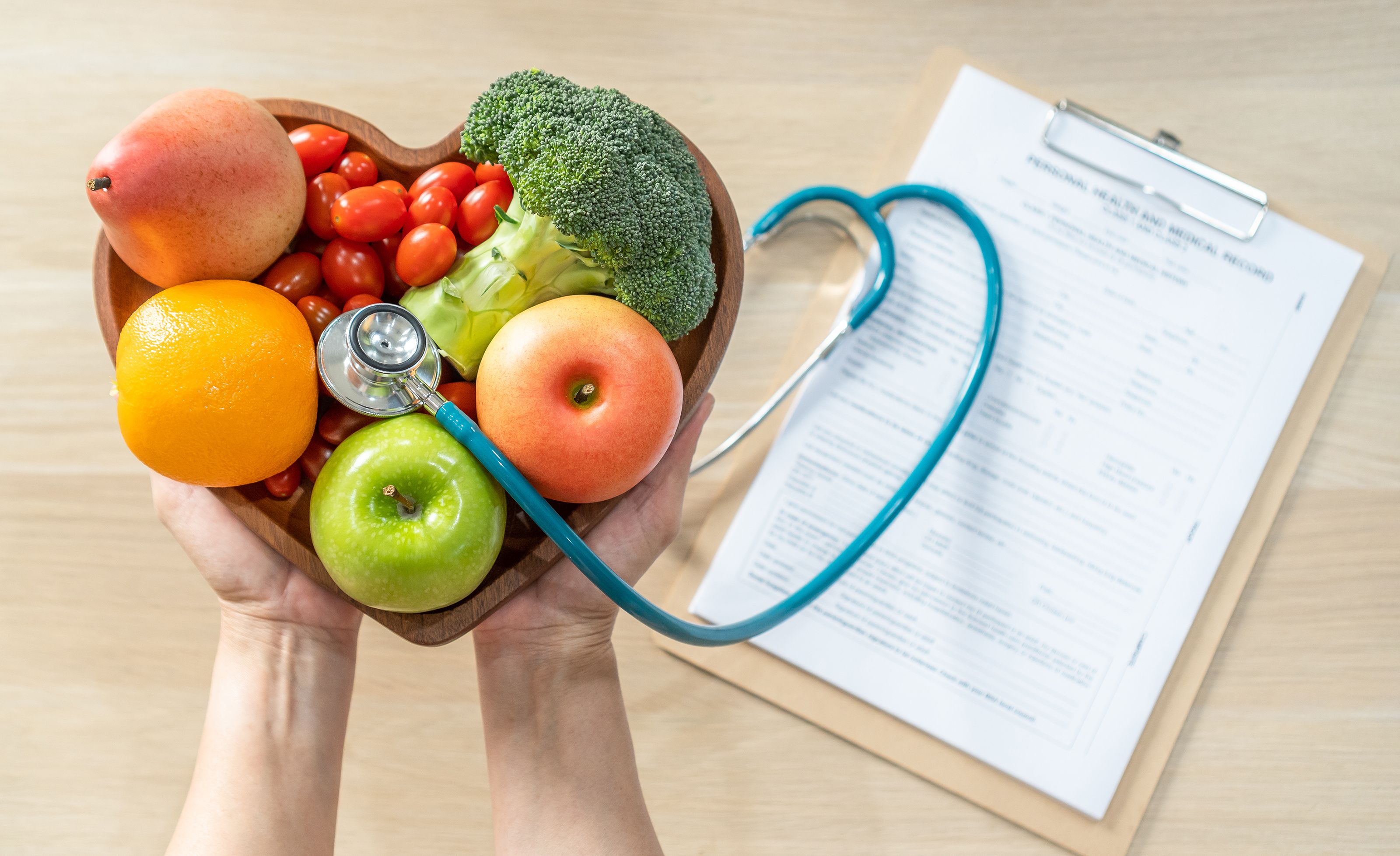
Publication
Article
Pharmacy Times
Supplements for Cardiovascular Health: Navigating Crowded Shelves
Author(s):
Cardiovascular disease is the leading global cause of death among men and women, annually accounting for an estimated 17.3 million deaths worldwide.
According to the American Heart Association (AHA), cardiovascular disease (CVD) is the leading global cause of death among men and women, annually accounting for an estimated 17.3 million deaths worldwide; that number is projected to increase to more than 23.6 million by 2030.1
CVD claims more lives than all forms of cancer combined. In the United States, an estimated 610,000 Americans die annually from CVD, and an estimated 85.6 million are living with some form of the disease.1,2 Additionally, the AHA reports that someone in the United States dies of CVD almost every 90 seconds.1
Around the world, health care professionals are continuously making patients aware of the significance of preserving cardiovascular health and are encouraging patients to take a proactive role in assessing their individual risks for CVD. Patients should be educated about the modifiable risk factors (ie, history of hypertension, smoking, obesity, diabetes, and hyperlipidemia) and nonmodifiable cardiovascular risk factors (ie, age, gender, ethnicity, and genetics/familial history of CVD). Patients should also be encouraged to discuss these risk factors with their primary health care providers (PHCPs).3 The results of a recent study show that preventable risk factors still account for an estimated 50% of deaths related to CVD among adults aged 45 to 79 years.4,5 In addition, various health organizations have launched patient education programs to promote the benefits of maintaining cardiovascular health because CVD is the leading cause of death among men and women in the United States and the number of individuals given a diagnosis of CVD continues to escalate annually.
Pharmacists are likely to encounter patients seeking advice on the various nutritional supplements formulated to promote cardiovascular health (Online Table). They are in a pivotal position to guide patients on the proper selection and use of these nutritional supplements and to provide patients with key information for improving or maintaining cardiovascular health.
Table: Omega Fatty Acid Dietary Supplements Marketed for Cardiovascular Health
Omega-3 Fatty Acid Supplements
Alpha Betic Omega-3 for Diabetic Health
Coromega Omega-3 Supplement Packets
Finest Natural Omega-3 Krill Oil
Iceland Health Omega 3 Fish Oil
Mason Natural
Nature’s Bounty Omega 3 Fish Oil Capsules
Nature’s Bounty Dual Spectrum Omega 3 Krill & Fish Oil Capsules
Nature’s Way Super Fish Oil
Nature Made Triple Omega Capsules
Natrol Omega 3 Fish Oil Capsules
Natrol Omega 3-6-9 Complex
Natrol Omega 3 Flax Seed Oil
Natrol DHA Omega 3 Softgels
Nordic Naturals Omega 3 Fish Oil Capsules/Liquid
Ocean Blue
Schiff MegaRed Omega 3 Capsules
Solgar Omega 3 Capsules
Sundown Triple Omega 3-6-9 Softgels
Twin Lab Omega 3 Fish Oil Softgels
Vitafusion Omega 3
Multivitamins Containing Plant Sterols or Omega-3 Fatty Acids
Centrum Specialist Heart
Nature Made Multi + Omega 3 Adult Gummies
Nature’s Bounty
Nature’s Way
One A Day VitaCraves Gummies Plus Omega 3 DHA
Vitafusion MultiVites Plus Heart Support
Garlic Supplements
Garlinase Fresh
Garlique
Nature Made
Nature’s Bounty
Nature’s Way
Kwai
Kyolic
Co-Enzyme Q10 Supplements
CoMAX Q10
Natrol CoQ10
Nature Made CoQ10
Nature’s Bounty CoQ10
Sundown CoQ-10
Windmill CoQ10
Vitafusion CoQ10
Cholesterol-Lowering Supplements
Metamucil
Natrol Cholesterol Balance
Nature Made CholestOff
One A Day Cholesterol Plus
Slo-Niacin
Plant Sterol Products
Windmill RX Premium Plant Sterol Cholesterol Control Formula
Natrol Cholesterol Balance
Red Yeast Rice
Natrol Red Yeast Rice with Garlic
Nature's Bounty Red Yeast Rice
Sundown Naturals Red Yeast Rice
Nature's Way HeartSure Red Yeast
Resveratrol Supplements
Finest Resveratrol Supplements
Natrol Resveratrol Plus 100mg Dietary Supplement
NeoCell Resveratrol Antioxidant
Although many health experts agree that obtaining essential nutrients such as vitamins, minerals, and trace elements via dietary means is optimal, meeting nutritional needs via diet alone is not always feasible for many individuals. Therefore, a plethora of nutritional supplements are marketed for promoting cardiovascular health and protecting against CVD. These supplements are available as single-entity or combination products in a variety of dosage forms, including tablets, capsules, liquid, and gummies. Some foods are even fortified with omega-3 fatty acids and plant sterols. In recent years, many manufacturers of multivitamin/mineral supplements have marketed formulations with blends of essential nutrients targeted for cardiovascular health. The most common ingredients marketed for promoting cardiovascular health include omega-3 fatty acids, coenzyme Q10 (CoQ10), garlic, red yeast rice, and resveratrol.4
Omega-3 Fatty Acids
Omega-3 polyunsaturated fatty acids (PUFAs) have an important role in heart and brain function and in normal growth and development.6-8 PUFAs are essential fats the body needs but cannot produce, so they must be acquired via dietary means or supplements.6-8 The consumption of omega-3 fatty acids through dietary means is optimal; however, many patients may elect to use omega-3 dietary supplements due to their convenience or the inability to consume enough omega-3 fatty acids through diet alone. The AHA recommends the consumption of omega- 3 fatty acids from fish and plant sources at least twice a week for all individuals because of the role these fatty acids play in cardiovascular protection.8 Commonly used omega-3 dietary supplements contain fish oil (which provides eicosapentaenoic acid and docosahexaenoic acid [DHA]) or flaxseed oil (which provides alpha-linolenic acid). Algae oils are a vegetarian source of DHA.9 Patients with an allergy or a hypersensitivity to any of these products should avoid using them.
Common adverse effects (AEs) associated with the use of omega-3 supplements include acid reflux, indigestion, nausea, diarrhea, and increased burping.7,9 Gastrointestinal (GI) AEs can be minimized if fish oil is taken with meals and if doses are started at a low level and gradually increased.7 The most common drugs and supplements that interact with omega-3 supplements include aspirin, anticoagulants, antiplatelet agents, and some herbal supplements.6,7 In addition, caution should be exercised by patients with diabetes because omega-3 fatty acid supplements may slightly decrease blood glucose. Remind patients who ingest more than 3 g of omega-3 fatty acids in supplement form that they should do so only under a physician’s care, since high intakes may result in excessive bleeding or worsen heart rhythm in individuals with arrthymias.6
Coenzyme Q10
CoQ10 is found in every human cell, primarily with the greatest concentrations in the mitochondria of the heart, liver, pancreas, and kidneys.6 This supplement has been used to treat cardiovascular conditions, including congestive heart failure, cardiomyopathy, and hypertension, and has been popular for managing AEs of statin drugs, such as myopathy.6,10-12 More research is needed to conclude whether CoQ10 is useful for treating statin myopathy; currently, there is no research regarding the effectiveness of CoQ10 supplementation for the prevention of statin myopathy.6,10-12 The most common AEs include insomnia, nausea, GI distress, anorexia, headache, heartburn, sensitivity to light, dizziness, rashes, and irritability.10,12 Patients who are taking warfarin should discuss the use of CoQ10 prior to use since potential vitamin K-like procoagulant effects may occur.6,10,12 Patients should have their international normalized ratios monitored more frequently until the effects of CoQ10 can be determined.6,10,12
Garlic
Garlic supplements have been used to treat conditions such as hyperlipidemia, hypertension, and type 2 diabetes and to prevent various cancers.6,13,14 Garlic supplements are manufactured from dried or fresh bulbs of the Allium sativum plant.6 Results from animal studies and in vitro studies show that garlic has hypotensive, hypolipidemic, antiplatelet, and antiinfective properties.6 The most common AEs include nausea, vomiting, and heartburn, all of which typically occur with megadoses.6,13,14 Due to the antithrombotic effects of these supplements, they should be discontinued at least 10 to 14 days before any surgical procedure.6 To avoid complications, patients should be reminded to discuss this issue with their PHCP.6 In addition, due to potential bleeding risks, patients taking warfarin or other platelet-active agents should be advised to consult their PHCP prior to using garlic supplements.6 Study results have shown that the use of garlic supplements may also decrease concentrations of the drug saquinavir by an estimated 50%; therefore, the use of garlic supplements and agents for treating HIV should typically be avoided.6
Red Yeast Rice
Red yeast rice, also known as Monascus purpureus, is yeast that grows on fermented rice and is often used in Chinese medicine.6,15,16 Red yeast rice supplements are often used to lower lipid concentrations. 6,15,16 They contain multiple components, one of which is monacolin K, a naturally occurring lovastatin analogue.6,15,16 Because this yeast contains a chemical comparable to the prescription drug lovastatin, its use may cause similar AEs, such as liver damage, severe muscle pain, and muscle damage.15,16 The FDA has determined that red yeast rice products containing more than trace amounts of monacolin K are unapproved new drugs and cannot be sold legally as dietary supplements.15 The most common AEs associated with this supplement include allergic reactions, headache, bloating, heartburn, and flatulence.6 In addition, rhabdomyolysis and increases in liver function test results have been observed in patients who take red yeast supplements; therefore, liver function should be regularly evaluated in these patients.6
Resveratrol
Resveratrol is classified as a polyphenol and is found in grapes, wine, blueberries, and pistachios.6 Several clinical studies have investigated the link between resveratrol and its cardioprotective effects. According to the National Institute of Diabetes and Digestive and Kidney Diseases, resveratrol has been proposed as a treatment for hyperlipidemia and to prevent fatty liver, diabetes, atherosclerosis, and aging; its use has not been associated with serum enzyme elevations or with clinically apparent liver injury.17 High dietary intake of resveratrol is linked to lower lipid levels, blood pressure, glucose levels, and heart rates.6 There is no conclusive evidence regarding the benefits of using resveratrol supplements.17 The most common AEs include minor GI upset, nausea, headache, and fatigue; possible supplement— drug interactions include estrogens and anticoagulants.17
Ms. Terrie is a clinical pharmacy writer based in Haymarket, Virginia.
References
- Heart disease and stroke statistics: at a glance. American Heart Association website. www.heart.org/idc/groups/ahamah-public/@wcm/@sop/@smd/documents/downloadable/ucm_470704.pdf. Accessed October 1, 2015.
- Heart disease fact sheet. Centers for Disease Control and Prevention website. www.cdc.gov/dhdsp/data_statistics/fact_sheets/fs_heart_disease.htm. Accessed October 1, 2015.
- Cardiovascular disease risk factors. World Heart Federation website. www.world-heart-federation.org/cardiovascular-health/cardiovascular-disease-risk-factors. Accessed October 1, 2015.
- Doyle K. Half of heart disease deaths due to preventable factors. Reuters website. www.reuters.com/article/2015/06/30/us-usa-heartdisease-prevention-idUSKCN0PA2PO20150630. Accessed October 6, 2015.
- Patel S, Winkel M, Ali MK, Narayan KM, Mehta NK. Cardiovascular mortality associated with 5 leading risk factors: national and state preventable fractions estimated from survey data. Ann Intern Med. 2015;163(4):245-253.
- McQueen C, Orr K. Natural products. In: Krinsky D. Berardi R, Ferreri S, et al, eds. Handbook of Nonprescription Drugs. 17th ed. Washington, DC: American Pharmacists Association; 2012.
- Omega-3 fatty acids, fish oil, alpha linolenic acid. Medline Plus website. www.nlm.nih.gov/medlineplus/druginfo/meds/a607065.html. Accessed October 5, 2015.
- Fish and omega-3 fatty acids. American Heart Association website. www.heart.org/HEARTORG/GettingHealthy/NutritionCenter/HealthyDietGoals/Fish-and-Omega-3-Fatty-Acids_UCM_303248_Article.jsp. Accessed October 3, 2015.
- Omega 3 supplements: an introduction. National Center for Complementary and Alternative Medicine website. http://nccam.nih.gov/health/omega3/introduction.htm#moreinfo. Accessed October 2, 2015.
- Coenzyme-Q-10. Medline Plus website. www.nlm.nih.gov/medlineplus/druginfo/natural/938.html. Accessed October 1, 2015.
- Scott G. Does coenzyme Q-10 relieve statin induced myopathy? Medscape website. www.medscape.com/viewarticle/709107. Accessed October 5, 2015.
- Coenzyme Q-10: what you need to know. National Center for Complementary and Alternative Medicine website. http://nccam.nih.gov/health/supplements/coq10. Accessed October 1, 2015.
- Garlic supplements. Medline Plus website. www.nlm.nih.gov/medlineplus/druginfo/natural/300.html#Effectiveness. Accessed October 2, 2015.
- Garlic. National Center for Complementary and Alternative Medicine website. http://nccam.nih.gov/health/garlic/ataglance.htm . Accessed October 2, 2015.
- Red Yeast National Center for Complementary and Integrative Health website. https://nccih.nih.gov/health/redyeastrice. Accessed October 2, 2015.
- Read yeast. Medline Plus website. www.nlm.nih.gov/medlineplus/druginfo/natural/925.html. Accessed October 2, 2015.
- Resveratrol. United States National Library of Medicine website. http://livertox.nih.gov/Resveratrol.htm. Accessed October 2, 2015.

Newsletter
Stay informed on drug updates, treatment guidelines, and pharmacy practice trends—subscribe to Pharmacy Times for weekly clinical insights.
2 Commerce Drive
Cranbury, NJ 08512
All rights reserved.





